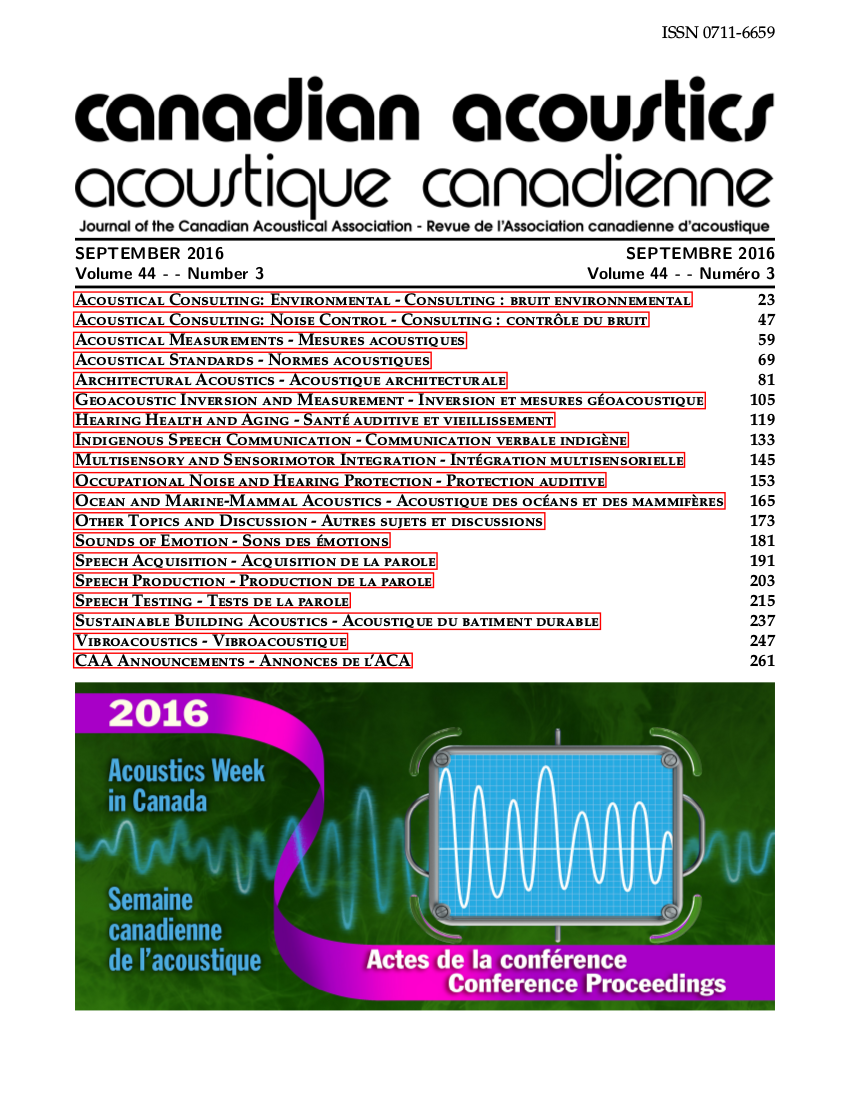Skin conductance responses to emotional speech in hearing-impaired and hearing-aided listeners
Abstract
Age-related hearing loss negatively impacts the perception of speech, and while hearing aids can ameliorate these deficits somewhat, questions remain about their ability to support the perception of emotion. In normal hearing adults, characteristic skin conductance responses (SCR) are triggered in response to emotional speech. The current study assessed the extent to which SCRs vary across normal-hearing, hearing-impaired, and hearing-aided older adults. Participants were presented with audio-only samples of linguistically neutral sentences spoken in a happy, sad, angry, or calm manner, and were asked to respond with the expressed emotion. Normal hearing participants were both faster and more accurate in their responses than the hearing-impaired or hearing-aided participants. Normal-hearing participants exhibited an increase in skin conductance in response to negatively-valenced and high-arousal stimuli (i.e., angry, and to some extent happy and sad). This increase was not present in hearing-impaired participants but was recovered in hearing-aided participants. These findings raise important questions about the efficacy of signal processing strategies employed in modern digital hearing aids.
Additional Files
Published
How to Cite
Issue
Section
License
Author Licensing Addendum
This Licensing Addendum ("Addendum") is entered into between the undersigned Author(s) and Canadian Acoustics journal published by the Canadian Acoustical Association (hereinafter referred to as the "Publisher"). The Author(s) and the Publisher agree as follows:
-
Retained Rights: The Author(s) retain(s) the following rights:
- The right to reproduce, distribute, and publicly display the Work on the Author's personal website or the website of the Author's institution.
- The right to use the Work in the Author's teaching activities and presentations.
- The right to include the Work in a compilation for the Author's personal use, not for sale.
-
Grant of License: The Author(s) grant(s) to the Publisher a worldwide exclusive license to publish, reproduce, distribute, and display the Work in Canadian Acoustics and any other formats and media deemed appropriate by the Publisher.
-
Attribution: The Publisher agrees to include proper attribution to the Author(s) in all publications and reproductions of the Work.
-
No Conflict: This Addendum is intended to be in harmony with, and not in conflict with, the terms and conditions of the original agreement entered into between the Author(s) and the Publisher.
-
Copyright Clause: Copyright on articles is held by the Author(s). The corresponding Author has the right to grant on behalf of all Authors and does grant on behalf of all Authors, a worldwide exclusive license to the Publisher and its licensees in perpetuity, in all forms, formats, and media (whether known now or created in the future), including but not limited to the rights to publish, reproduce, distribute, display, store, translate, create adaptations, reprints, include within collections, and create summaries, extracts, and/or abstracts of the Contribution.


